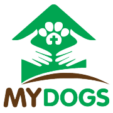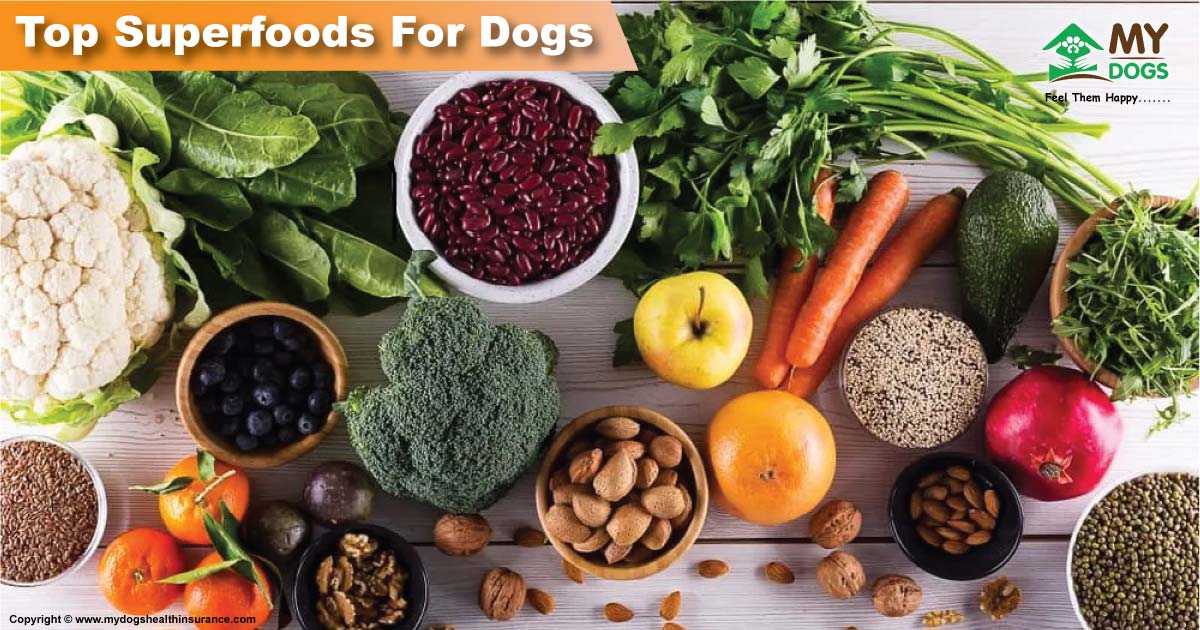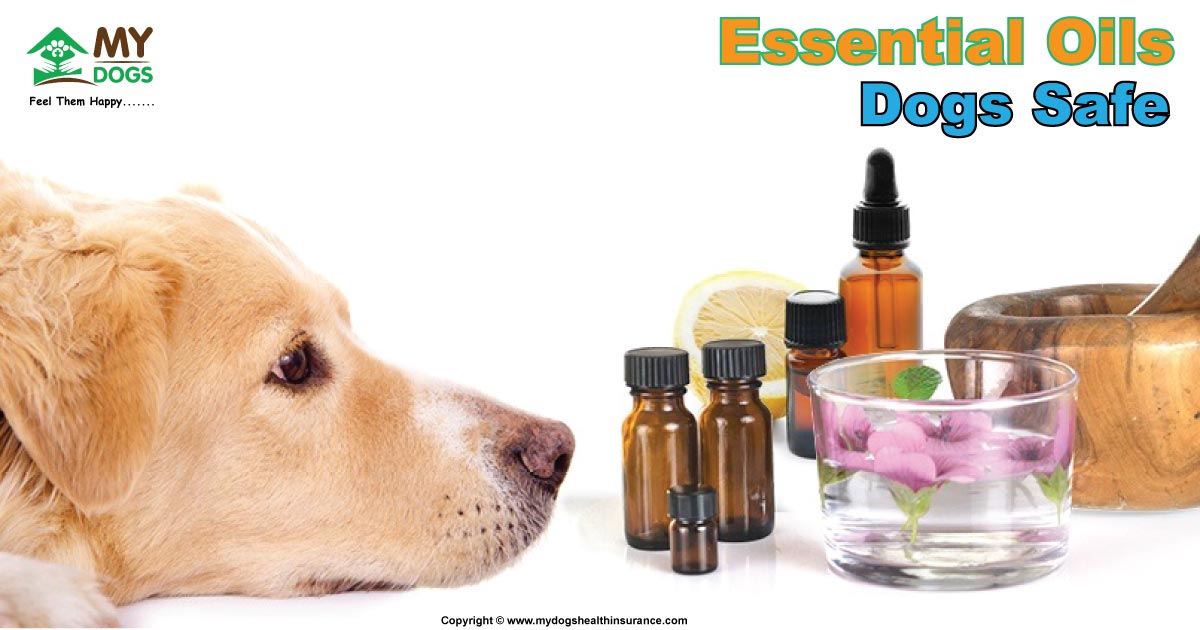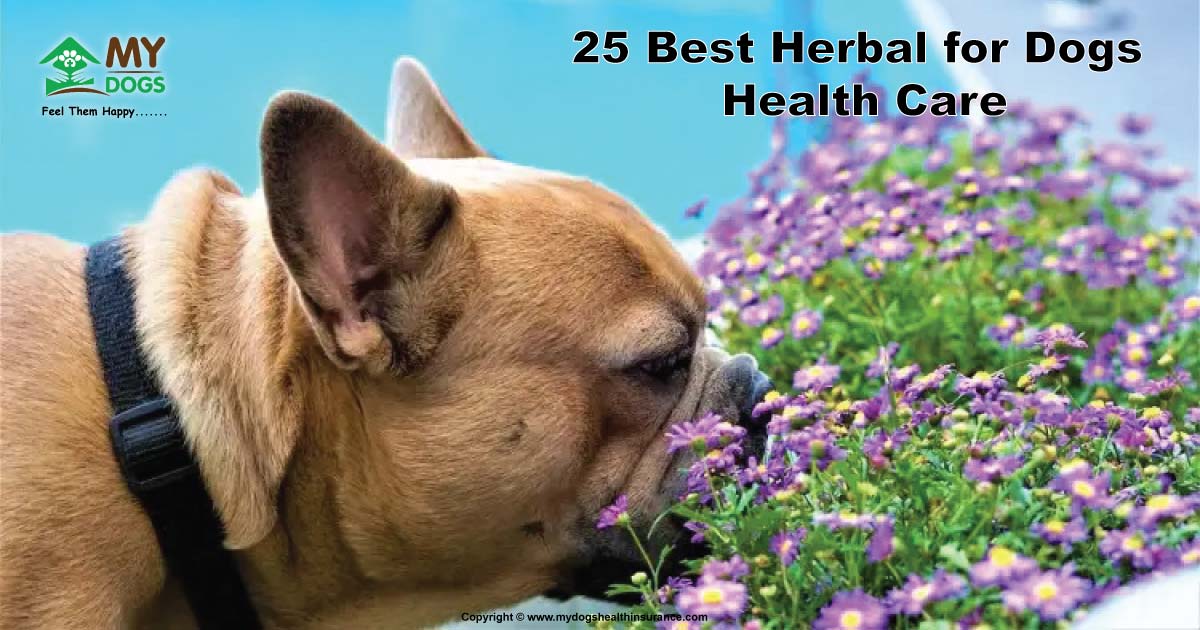In these days, there is a huge interest in superfoods for dogs in pet owners. These foods provide a wide range of health benefits to the pet’s body. Just like humans, dogs’ body being benefited from diets that added superfoods. Which boosts the immune system, enhances the digestive system, cares for healthy skin and coat, and much more. Pet owners learn more about the best superfoods for their loving friends(dogs), which are directly approved by Vet nutritionists.
You will learn In this article about a few commonly available superfoods for dogs. However, it is important to consult your vet or pet nutritionist, before any change in your dog’s diet plan. To ensure that they are getting the right balance of nutrition in foods. As a lovely dog owner always check that what kinds of foods you feed your pet, which helps your dog become healthy, and live a long and happy life.
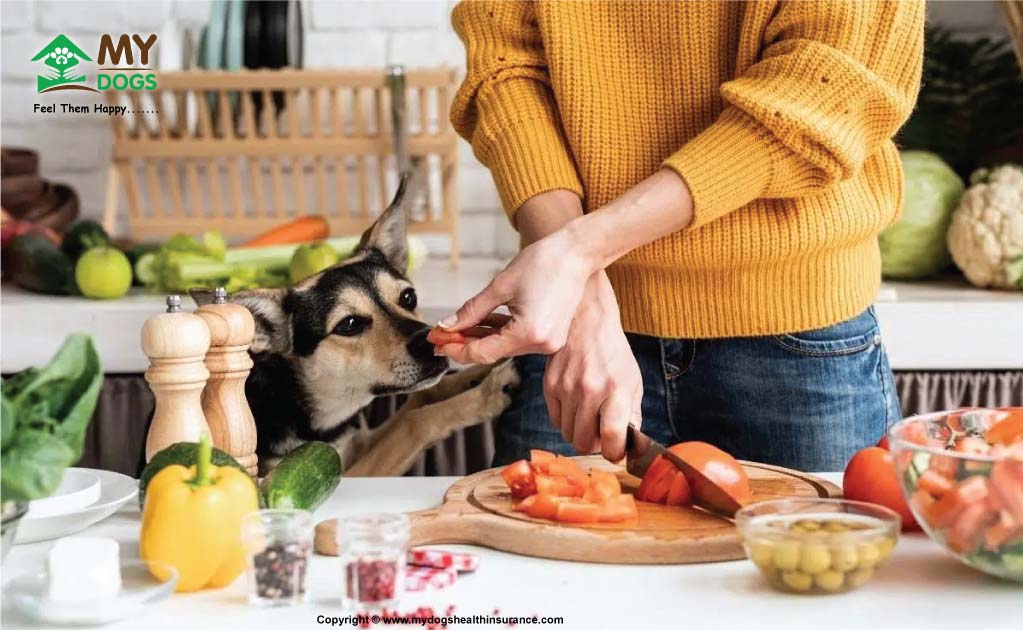
Most of the experienced vets recommended salmon, blueberries sweet potatoes, spinach, pumpkin, quinoa, coconut oil, broccoli, apples, and carrots are best ever superfoods for dogs. For example, blueberry is an excellent source of antioxidants. Salmon is riches in omega-3 fatty acids and vitamin D. Sweet potatoes and pumpkin are great sources of dietary fiber. Thats help regulate the digestive system of dogs. And spinach is loaded with different useful vitamins and minerals. Quinoa is protein-rich grain food, which provides essential amino acids. Coconut oil is fully rich in healthy fats. Broccoli contains different nutrients that support the immune system of dogs. Apples and carrots are high sources of fiber and vitamins.
Top 10 Superfoods For Dogs:
Blueberries:
Blueberries for dogs,
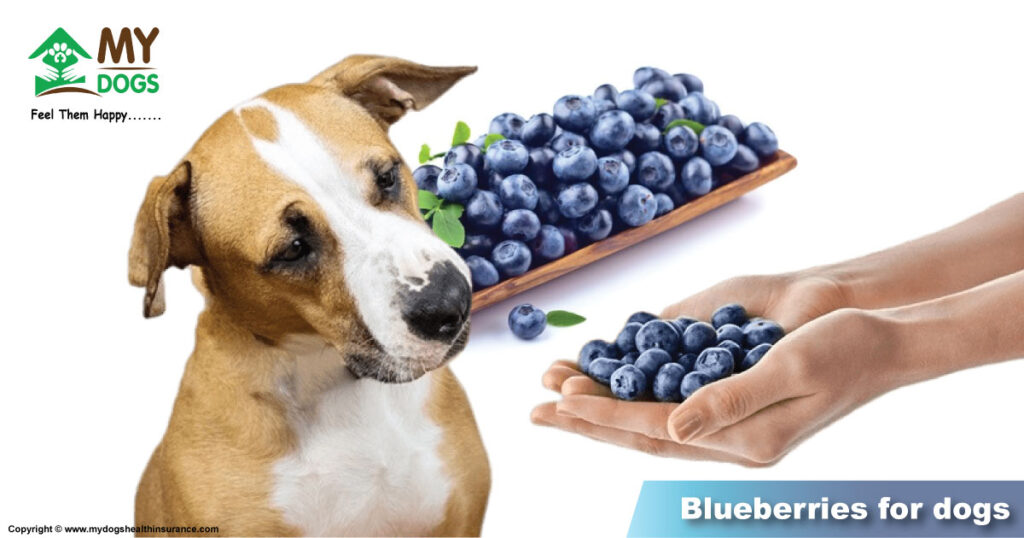
- Blueberries are high in antioxidants, which help protect the dog’s cells that damage caused by any deep injury or wound.
- Blueberries have high in calories and high in fiber, therefore this fruit is a great choice for dogs.
- Blueberries can help to lose weight of the dog or maintain a healthy balanced weight.
- Full of 85% of water, which is best for hydration benefits for dogs.
(2) Salmon:
Salmon for dogs
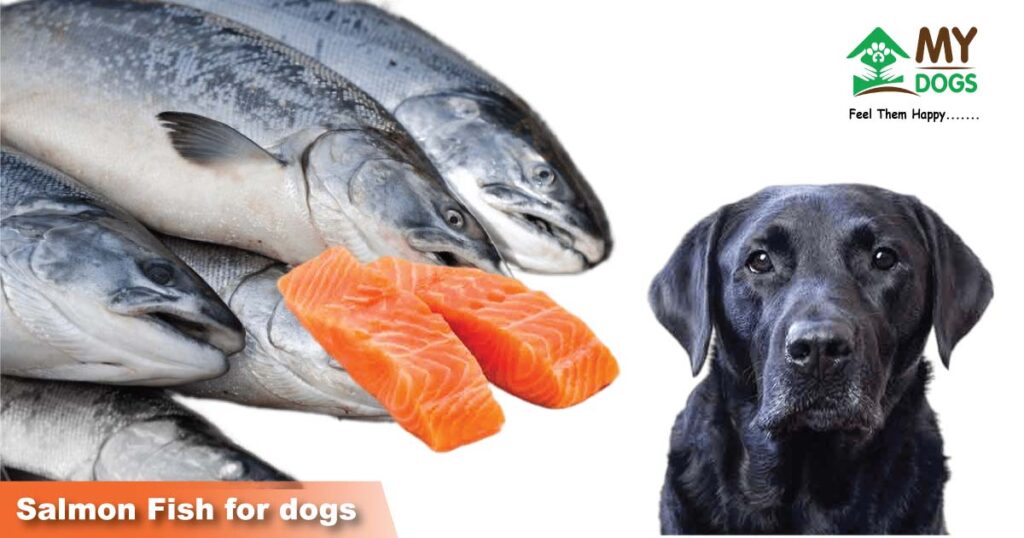
- Salmon provides protein, vitamin D and other omega-3 fatty acids.
- These nutritional elements help to keep the dog’s coat shiny and healthy, best for skin and coat.
- Salmon fish improve joint health, and boost brain functionality of dogs.
- It’s important that you must avoid feeding the dog raw salmon.
- High risk of salmonella or other harmful bacteria if your dog has eaten raw salmon.
Sweet Potatoes:
Sweet potatoes for dogs
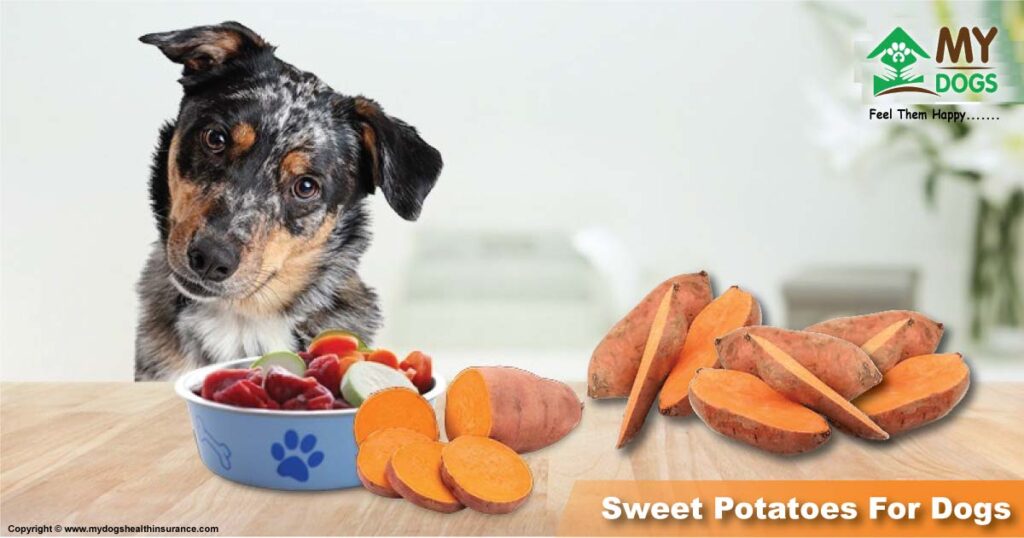
- Dietary fiber is well-preserved in sweet potatoes.
- Sweet potatoes which helps to regulate the digestive system and keep your dog feeling full stomach.
- Sweet potatoes contain vitamins A and C, which help boost the immune system of dogs
Spinach:
Spinach for dogs
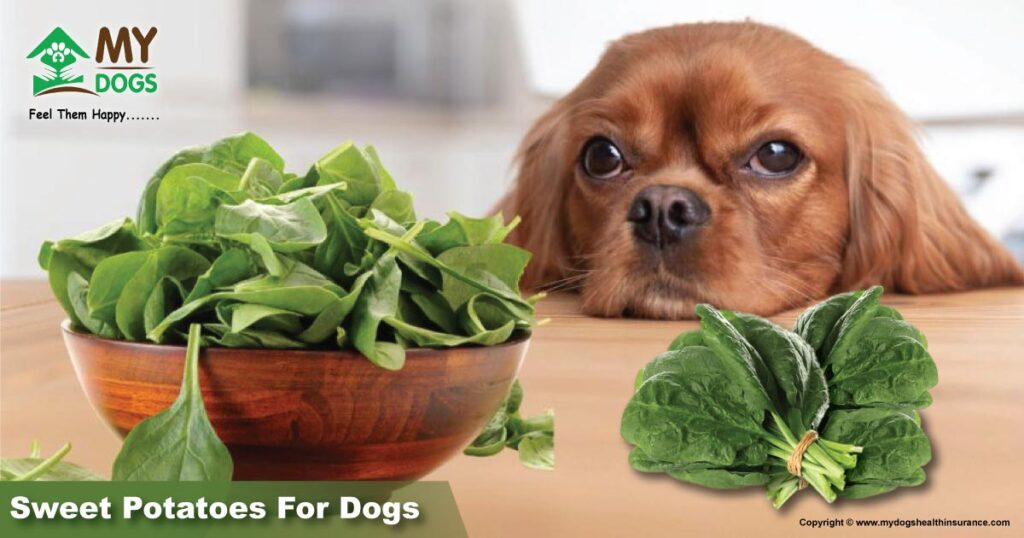
- Vitamins A, C, and K, iron and calcium nutrients are contained in spinach.
- These nutrients help dogs bone strong , improve eye vision, and increase the health of skin and coat.
- Vitamin K is present in spinach. This component in the process of blood clotting in dogs.
Pumpkin:
Pumpkin for dogs
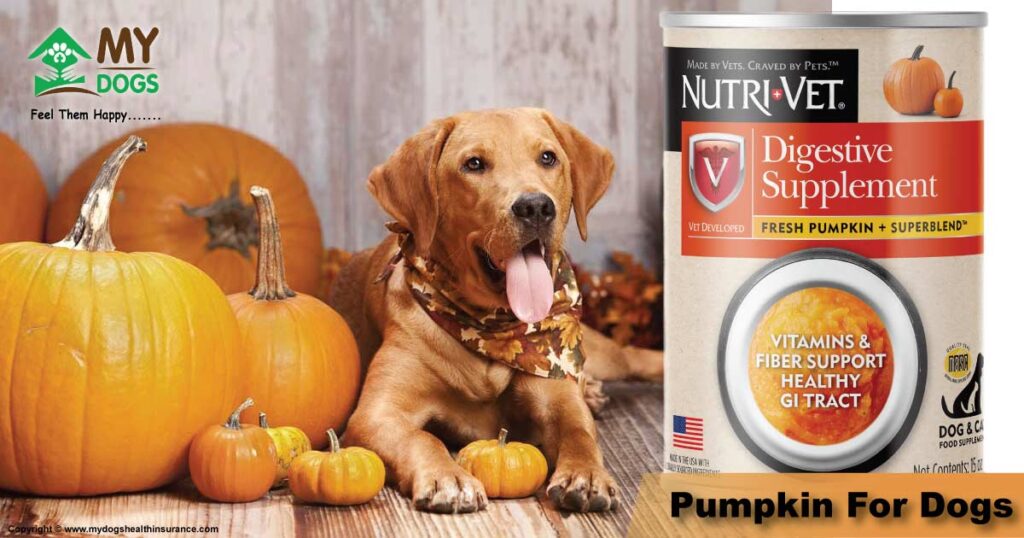
- Pumpkins provide rich fiber, which helps regulate the digestive system of dogs.
- Vitamins A and C available in pumpkin, these elements support the immune system of dogs and best for healthy skin and coat.
Quinoa:
Quinoa for dogs
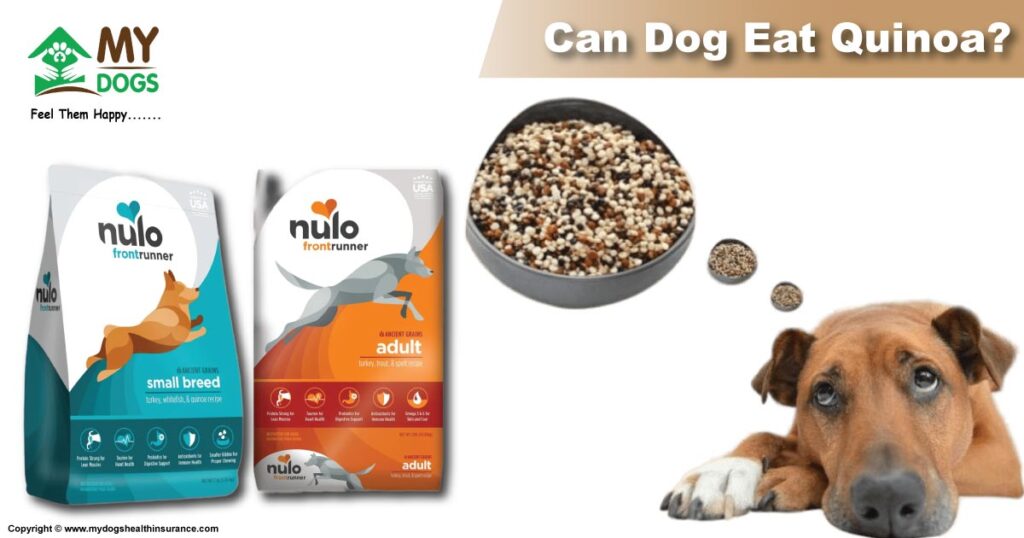
- Quinoa is a protein-rich grain.
- essential amino acids and other useful nutritional acids are contained in quinoa.
- Quinoa is gluten-free, making food sensitivities in dogs.
Coconut Oil:
Coconut oil for dogs
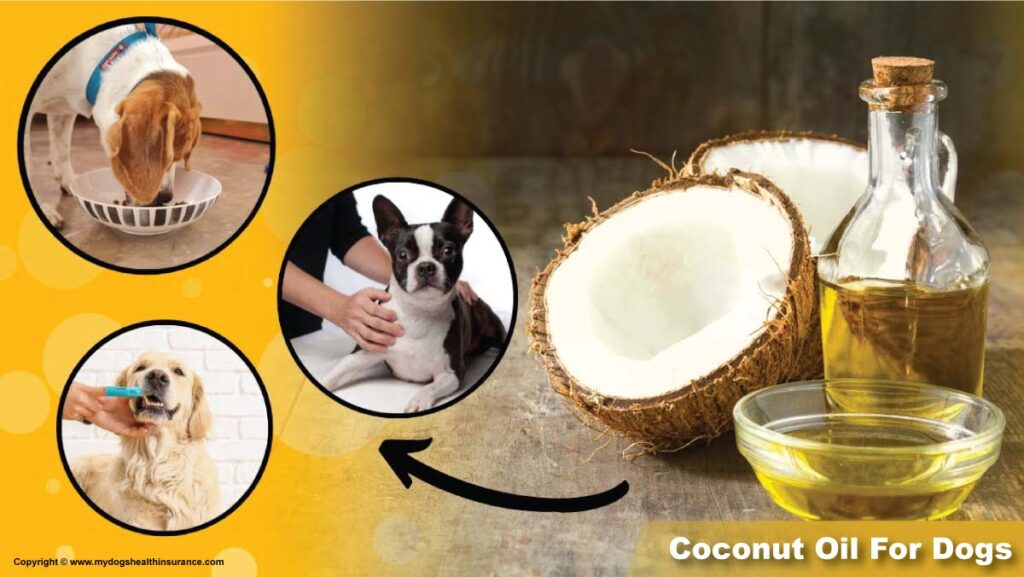
- Coconut oil is a good source of healthy fats that help improve skin and coat health.
- Use of coconut oil supports brain functionality.
- It’s important to note that you should start with little quantity oil and gradually increase the dosage to avoid digestive upset.
Broccoli:
Broccoli for dogs
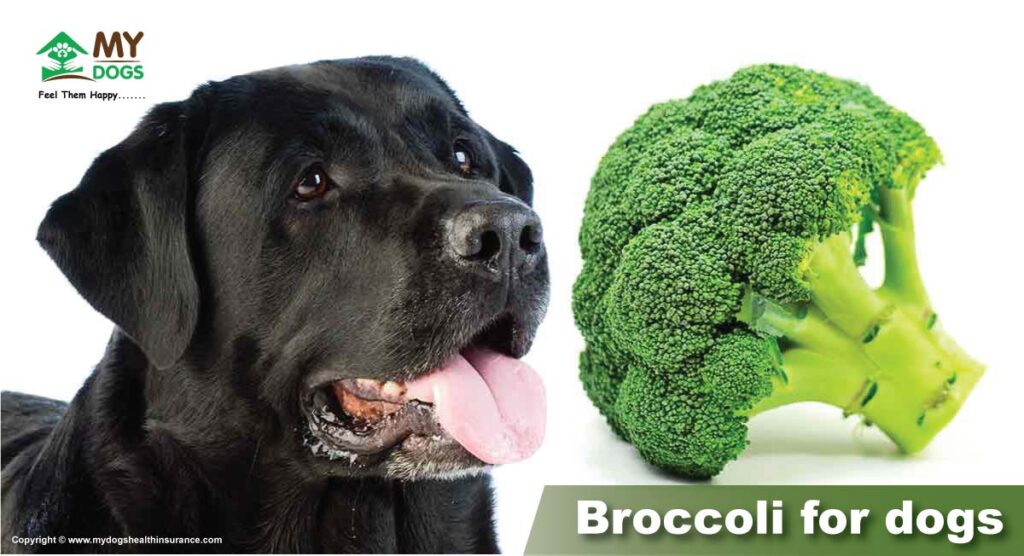
- Multi vitamins and minerals, including vitamins C and K, folate, and potassium nutrients are available in broccoli.
- These nutritional elements support immune function and healthy digestion of dogs.
Apples:
Apples for dogs
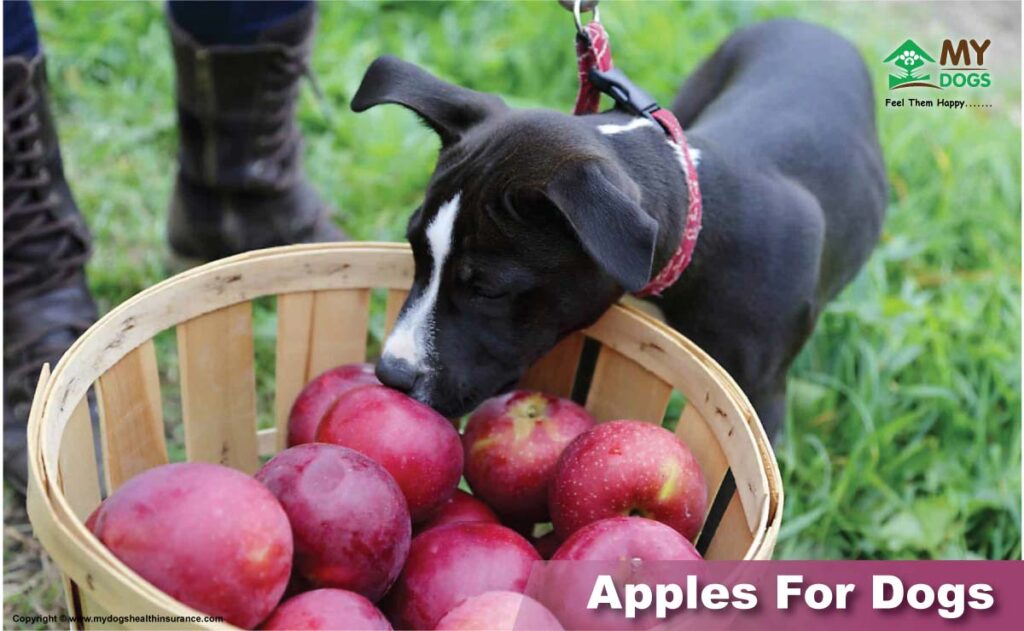
- Apples are considered a fantastic source of vitamin C and fiber.
- Apples help to improve digestion, boost the immune system of dogs,
- Freshen the dog’s breath.
Carrots:
Carrots for dogs
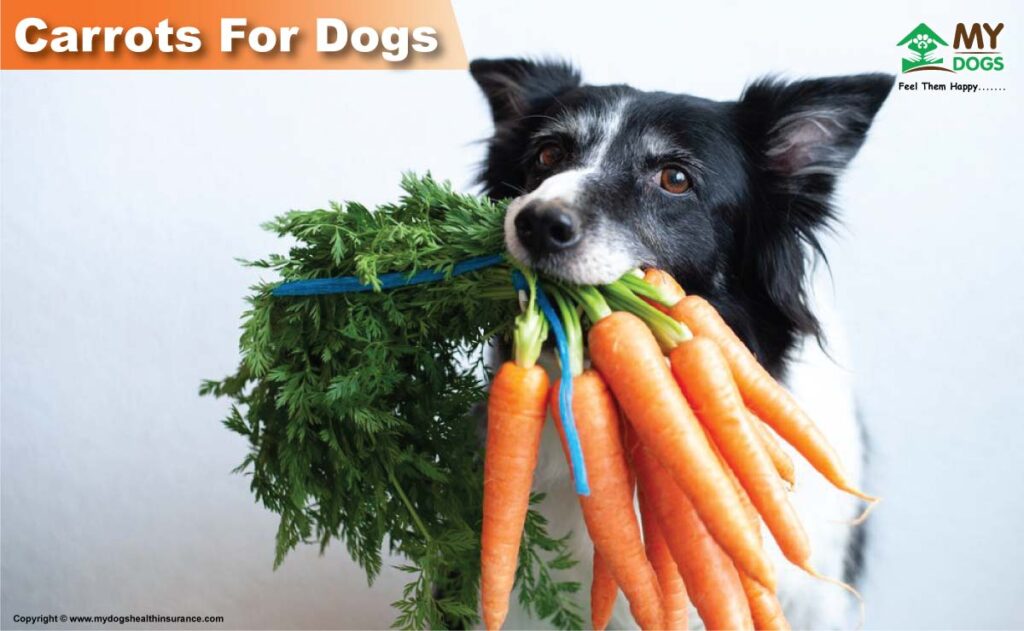
- Carrots provide beta-carotene. This nutrient helps support eye health and boost the immune functions of dogs.
- Carrots are rich in dietary fiber, which help regulate the digestive system of dogs.
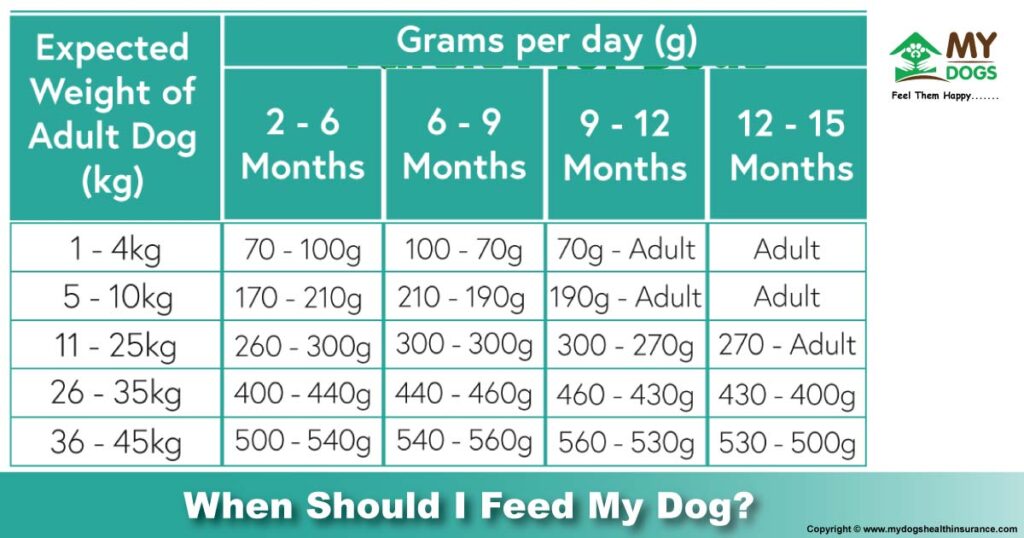
When Should I Feed My Dog:
Most dog owners ask this question. In many surveys observed that dog owners feed their pets either in the morning or the evening, and sometimes both. However, it always depends on the dog’s age, needs, or physical activity. Some dogs fare better with their daily ration split into two or even three meals, while others are happy to eat their daily allowance in one helping It is best not to feed adult dogs at the same times every day, as relying on a rigid routine can prove distressing for a dog whenever you are not able to feed him at the expected time. Not knowing when it will be fed also helps keep a dog food orientated, which usually proves most helpful when training; it also discourages fussy eating.
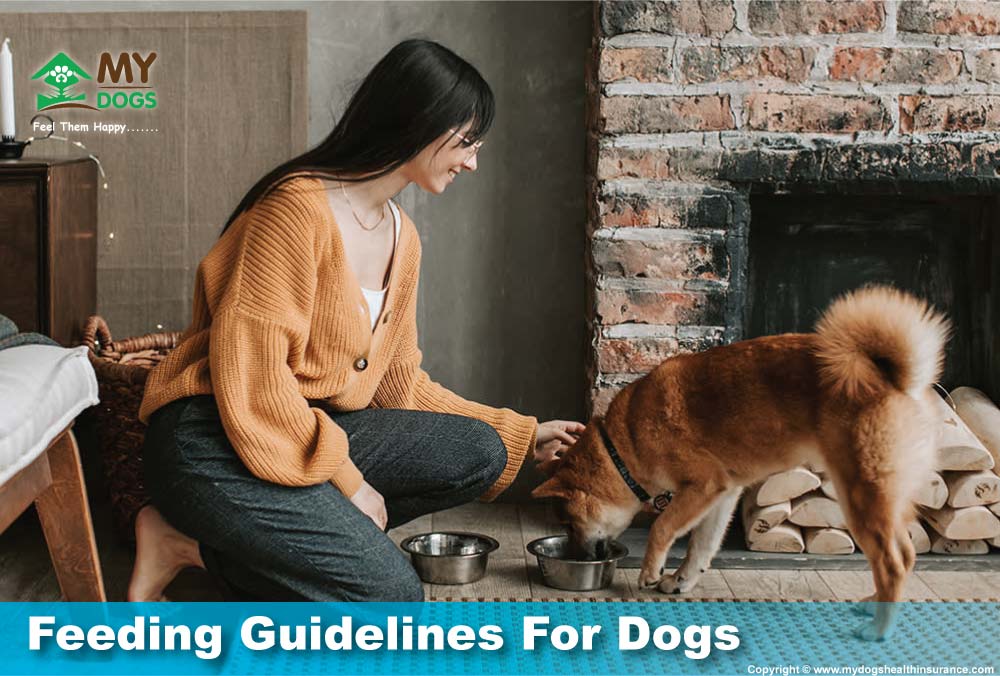
Feeding Guidelines For Dogs:
Here are some basic guidelines to follow:
- Place a feeding mat, newspaper, and underfeeding bowls if your dog is a messy eater.
- It is best to introduce changes to diet gradually to avoid digestive upsets.
- Never give spiced food or that to which any alcohol has been added.
- To prevent choking, remove all bones from fresh meats and fish.
- Fresh, clean drinking water should always be available, whatever he is being fed.
- Make sure that your dog food and water bowls are well cleaned.
- Never allow your dog to eat chocolate intended for human consumption, as it’s toxic for him.
- Consult your vet if your dog shows any reluctance to eat or drink.
- Discourage your dog begging at the table, and certainly don’t give into it. Sometimes it can be hard to resist those pleading eyes, but you must for the sake of your dog’s waistline and health
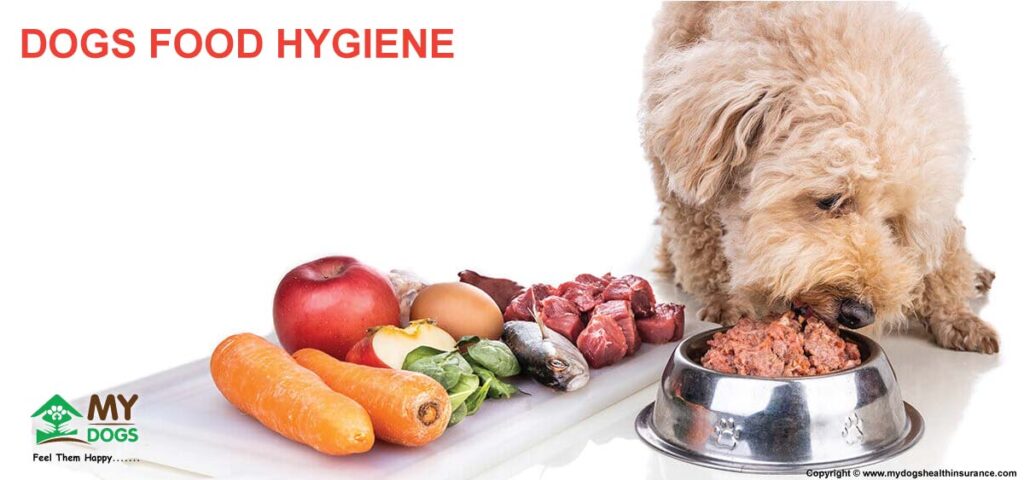
DOGS FOOD HYGIENE:
- Canned foods deteriorate quickly once opened, so refrigerate and use within 24 hours. To avoid tin contamination, decant leftover canned foods into ceramic, stainless steel, or plastic food containers.
- Household disinfectants and detergents can taint food and water bowls and put your pet off using them, so it is preferable to use salt solution (1 teaspoon to half a litre/1 pint of water) or proprietary pet bowl cleaners, and then rinse thoroughly in clean water to clean and disinfect them.
- Clean bowls daily-your dog’s good health depends on it.
- Wash pet feeding items separately from your own dishes and utensils.
- When feeding semi-moist food, reseal the packet to make it airtight in order to retain freshness and reduce moisture loss until the next mealtime.
Tips:
Water is essential for life itself, and your dog should always have access to a fresh, clean supply. Refill the water bowl each day, and clean it regularly.
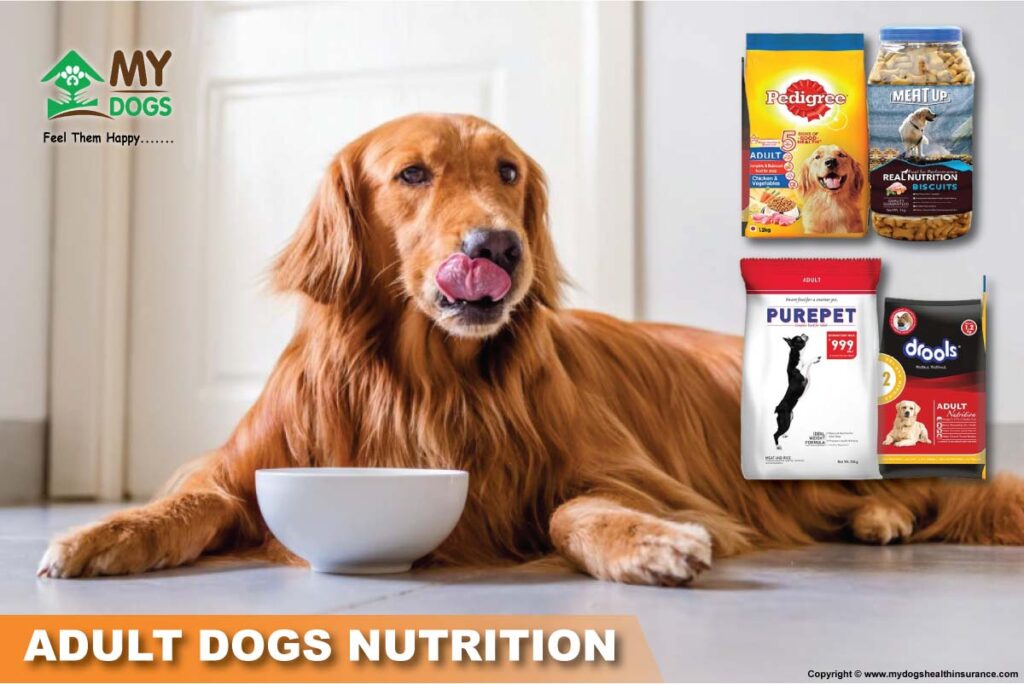
ADULT DOGS NUTRITION:
These guidelines on practical feeding when applied to the adult dog should follow the same principles as for the youngster Although a mixed diet is good for humans it is not necessarily the case for dogs. A common trap is to assume that the dog will need to have its diet changed several times a week to avoid it getting bored with its food. Once a suitable ration is found, stick to it. There is no need to alter the flavor or purchase the most expensive dog food in the supermarket as a special treat meal.
When choosing a feed, remember the time it will take to prepare and also the need to be able to exercise the dog 3-4 hours after eating, to allow for defecation before the dog settles down for the night. In some situations, specially formulated, high-energy foods will be needed to maintain body condition. Feeding one meal a day is usually sufficient for health. With regular weighing, if a dog is found to be putting on too much fat then a low-calorie commercial diet is best, as the dog can eat this without feeling underfed in quantity.
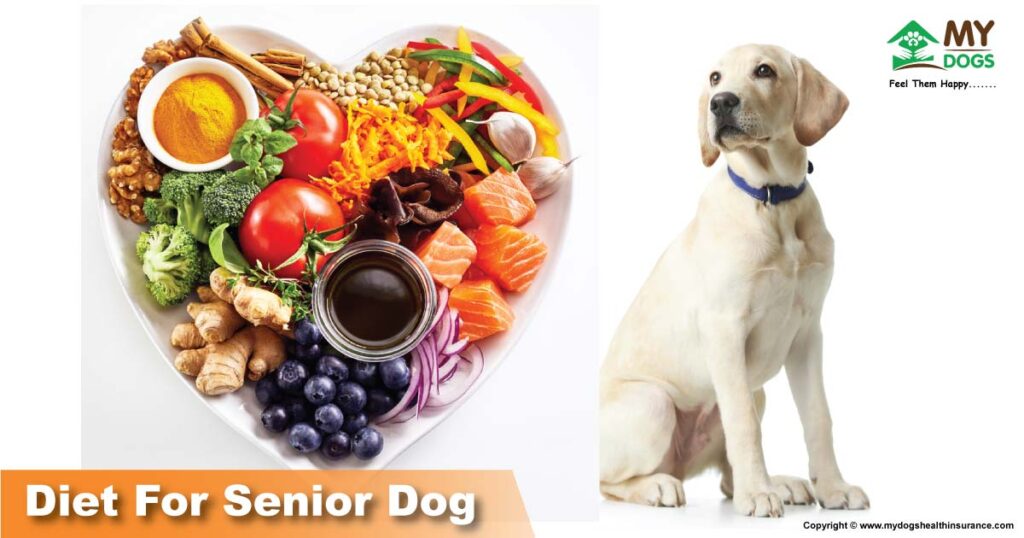
Diet For Senior Dog:
As dogs get older usually the energy requirement decreases, the dog walks less both in the home and when out on the lead, it goes slower so less distance is covered. The aim should be to maintain the body weight of the dog at the level of when it was younger. At the first weight increase in excess of 2kg. introduce a restricted-calorie diet. It is much easier to make this adjustment at the first sign of a dog being overweight than to try dieting when a lot of ‘fixed fat’ has been deposited under the skin and it is then more difficult to get it burned up by the dog.
The protein content of the food is often associated with increasing palatability; the advised percentage of 14-18 percent (14%-18%) is slightly lower for dogs in old age. Any suggestion of reduced kidney function should be confirmed by blood-testing the dog, and diet adjustments made based on the blood and urine test results. The protein then provided should be of high biological value and, as muscle meats contain a lot of phosphorus, these should be restricted, as the phosphates cause as much or more damage as the waste products of protein digestion, to the old dog. An increase in the fiber content of the food may guard against a tendency to constipation, and when there is heart disease, a lower sodium and phosphorus intake will be required. In the circumstances of heart, kidney, or liver disease, feeding is made much easier if one of the special veterinary prescription diets is used.
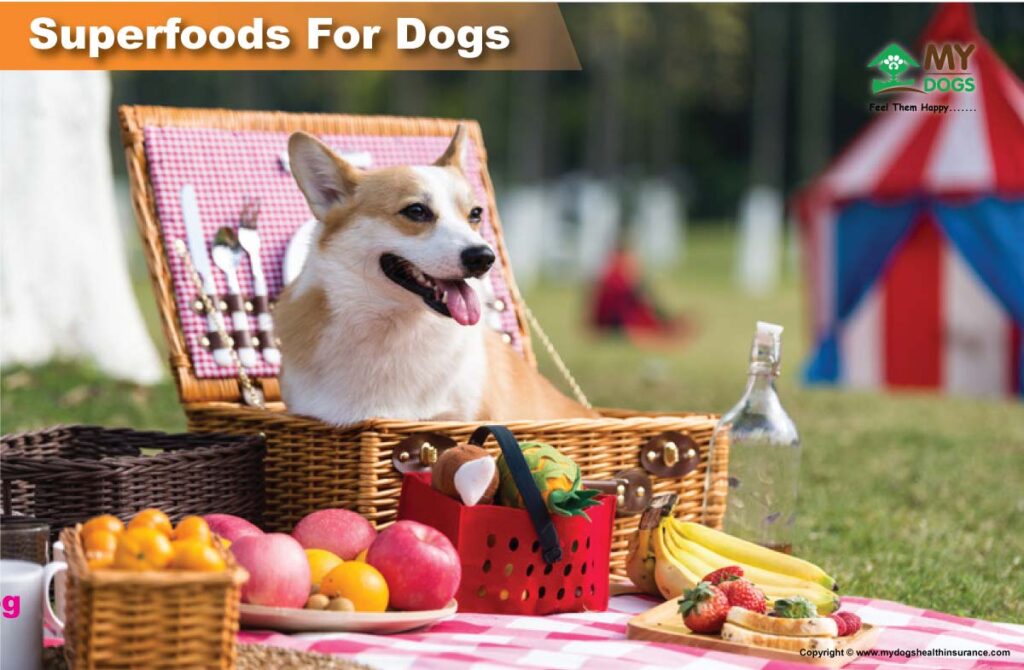
Conclusion:
I hope that you have well awarded after reading the article about superfoods for dogs. Which I mentioned above article play a very important role in dogs’ health. If you decide to add to your dog’s diet. As like blueberries, salmon, sweet potatoes. As well as spinach, pumpkin, quinoa, coconut oil, broccoli, apples and carrots etc. These fruits and vegitables provide a wide range of health benefits to dogs. As like improving the digestive system, immune function and skin and coat health care for dogs. However, it is important you must consult with your vet in this regard. To ensure that your dog getting the right balance diet. And to monitor the dog’s response to any new food addition.
Note: For more informative Articles about dog Food & Nutrition, Click Here:
You can explore 15 High Quality Dry Dog Food Brands in the US by reading this article.
FAQ
How do you make superfood for dogs?
Making superfood for dogs may start with a high-quality protein source. Add a variety of vegetables. Incorporate some healthy fats. include superfood ingredients such as eggs, 2 celery sticks, 1 sweet potato, 1/4 cup ground flax, 1/2 cup garbanzo bean flour, 1/4 cup coconut oil, 4 tablespoons natural peanut butter, 1/4 cup chia seeds.
What food should dogs eat daily?
Dogs eat a well-balanced diet that includes protein, carbohydrates, healthy fats, vitamins, and minerals. High-quality commercial dog food or a homemade diet approved by a vet, can provide all the nutrients. The quantity and frequency of feed depend on the dog’s size, age, activity level, and overall health. Always provide fresh, clean water for your dog.
What is a dog’s natural diet?
Meat is a dog’s natural diet consists as primarily. Which maybe include muscle meat, organs, and bones. This diet is high in protein and fat. But low in carbohydrates. while domestic dogs can thrive on a balanced diet that includes a variety of protein sources, carbohydrates, healthy fats, vitamins, and minerals. Either from commercial dog food or a homemade diet approved by a veterinarian.
What vegetables can dogs eat everyday?
Some vegetables that you can give dogs every day. include green beans, carrots, pumpkin, spinach, and sweet potatoes. These vegetables provide vitamins, minerals, and fiber that could support a dog’s overall health. It’s important to introduce new foods gradually as some dogs may have allergies or digestive issues. But you must consult with a veterinarian before making any changes to your dog’s diet.
Disclaimer:
Always consult your veterinarian before introduce any new food to your dog’s diet.. The vet could help you determine the most suitable formula for your dog. Specific according to dog needs, health conditions and breed also.
